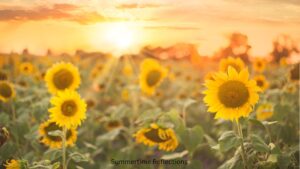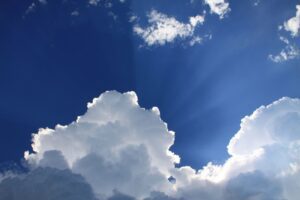Pam Kramer: As we begin the Lenten season this month, Pastor Justin and I will be writing a two-part exploration of Lenten poetry from the “Full to the Brim” materials which are the basis of Trinity’s Lenten activities. Pastor Justin will write Part 2 for April.
Everyone knows I love poetry. Poetic language is open to interpretation and resonates differently with people who read it. There is no one correct way to interpret a poem. The poems Pastor and I will share each resonate with us in different ways. We encourage you to read them and discern how they speak to you.
What I Forgot written by Rev. Sarah Speed
Sometimes I wish I was the fig tree.
No fruit here, just soaking up the sun,
growing roots, turning green,
stretching out my branches until
I can hug the horizon.
Sometimes I wish I was the fig tree,
because she doesn’t produce,
and she’s not exhausted,
and she probably gets eight hours
of sleep at night.
And her branches, unlike my shoulders,
are not heavy with work—
pulled toward the ground,
threatening to break.
And her trunk, unlike my spine,
is not fighting to stand tall
while holding it all together.
Sometimes I wish I was the fig tree
because she knows
what I forgot
many years ago.
You are still worthy
even if
you don’t produce.
On first reading, I see a glorious tree basking in the sun, contrasted with a woman who is burdened by life’s shade; perhaps even ashamed of being childless in a world that values children. OK, simple? No!
Why did the poet choose a fig tree? First, fig trees are male and female. Female fig trees produce edible fruit and males do not. This “she” does not produce fruit. Wonder why? Second, this fig tree is among a vineyard of producing species. Third, AHA! Remember Jesus’ parable of the fig tree? The owner of a vineyard wants his gardener to cut it down because it hasn’t produced in three years. The gardener replies that he will give it extra attention for another year so that it can produce. The fig tree, the outsider, needs love and attention.
After multiple readings, I realized what the fig tree symbolized – different-ness, longing to belong, the outsider. The homeless, the poor, those of a different racial or sexual orientation than I, all are worthy in God’s eyes of love and nurturing. Thus, reading the last lines of this poem are stunning in their truth and simplicity. God’s grace is granted to all of us. By sharing Jesus’ radical love, understanding, and inclusion, we can help all bear fruit.


